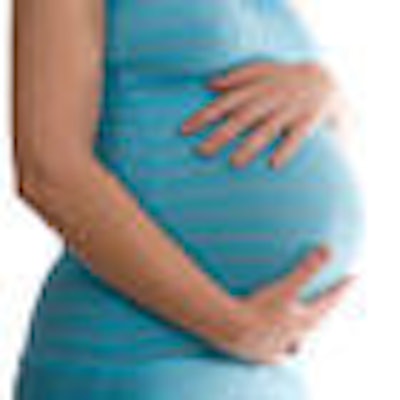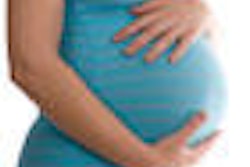
The potential link between periodontal disease and adverse pregnancy outcomes continues to garner attention, with a number of studies reporting varying results.
Now a new study has found that periodontal disease was more severe and a periodontitis diagnosis more frequent in mothers with preterm or low-birth-weight babies versus those who had full-term, normal-weight infants. However, the placental inflammatory infiltrate and bacterial profile of both groups did not differ (Journal of Periodontology, November 3, 2012).
The scientific literature has been divided, and contradictory results have been reported on the association between maternal periodontal disease and the risk of preterm birth and/or low birth weight, noted the study authors. Some researchers have proposed that periodontitis may not be causally related to negative birth outcomes and that both may result from the same hyperinflammatory and/or environmental influences in the mothers.
"From the first studies in 1996, more than 150 papers have tried to clarify this systemic relation," said lead author Francisco Mesa, DMD, from the University of Granada School of Dentistry in Spain. "My group has good relations with the maternal hospital services of my city that allowed us to investigate the topic."
Seeking an association
Dr. Mesa and colleagues wanted to determine whether periodontal clinical parameters, periodontal bacterial profiles, and inflammatory infiltrate in placental chorionic villi are associated with adverse pregnancy results.
“The bacteria are not a mechanism.”
They conducted an observational case-control study in pregnant women hospitalized in the Virgen de las Nieves University Maternity Hospital in Granada between July 2010 and March 2011. The study included 244 puerperal women: mothers with preterm birth/low-birth-weight newborns (91) and mothers with full-term, normal-weight infants who served as controls (153).
Inclusion criteria required participants to be age 18 years and older with a preterm birth (< 259 days of gestation) and/or low-birth-weight newborn (< 2500 g). The control group included women older than 18 years old with full-term gestation (≥ 259 days of gestation) and normal-weight newborn (> 2500 g).
Information was gathered from the clinical records of the mothers. Gestational age and newborn weight were obtained from neonatology department records. The authors also looked at the study participants' sociodemographic and gynecological backgrounds.
The women's periodontal health was assessed in a dental examination following World Health Organization recommendations for oral examinations and using the calibrated periodontal probe PCPUNC15.
Finally, the researchers collected data on placental inflammatory infiltrate in biopsies from 68 cases and 65 controls, as well as the gingival bacterial profile in mothers with periodontitis.
Microbial analysis
They found that periodontitis was more frequent in the mothers with preterm births or low-birth-weight infants (case group). It was diagnosed in 18 women in the case group versus 11 in the control group. In addition, data between the groups showed significantly worse values for all variables in the cases group.
The cases showed more bleeding, more gingival recession, and worse probing depth and clinical attachment level measurements. However, the placental inflammatory infiltrate and gingival bacterial profile (periodontal pathogen and commensal bacteria) were similar between the groups.
It has been suggested that the risk of prematurity may increase when the fetus is exposed to periodontal bacteria and an inflammatory response is generated, noted the study authors. However, microbial analysis using plate culturing allowed the study authors to identify and measure bacterial concentrations at subgingival sites, and they found no significant differences in the microbiota between the pregnant women with periodontitis in the two groups.
"No differences in anaerobic or commensal bacterial profile were found between mothers with periodontitis in the two groups," the authors noted. "Local placental factors, such as the nature of the inflammatory infiltrate and slightly higher expression of COX-2 in the women with these adverse pregnancy outcomes, may be related to a subclinical proinflammatory status that could contribute to triggering premature labor."
Although periodontal health was significantly worse in mothers with preterm birth/low-birth-weight newborns than in those with full-term, normal-weight infants, there was no difference between these groups in periodontopathogen profile or morphological changes in the inflammatory infiltrate in placental chorionic villi, the researchers concluded.
This was the first study to determine the inflammatory infiltrate in the women's placenta with normal and adverse birth outcomes, according to Dr. Mesa.
"Our study demonstrates that the microbiological periodontal profile and the inflammatory infiltrate in mothers with periodontitis cases is similar to mothers with periodontitis controls," Dr. Mesa said. "This means that the bacteria are not a mechanism in the above-mentioned association."
The uncertainty in the findings refers to the need for more investigation in this field to reinforce the above-mentioned association, the study authors concluded.



















